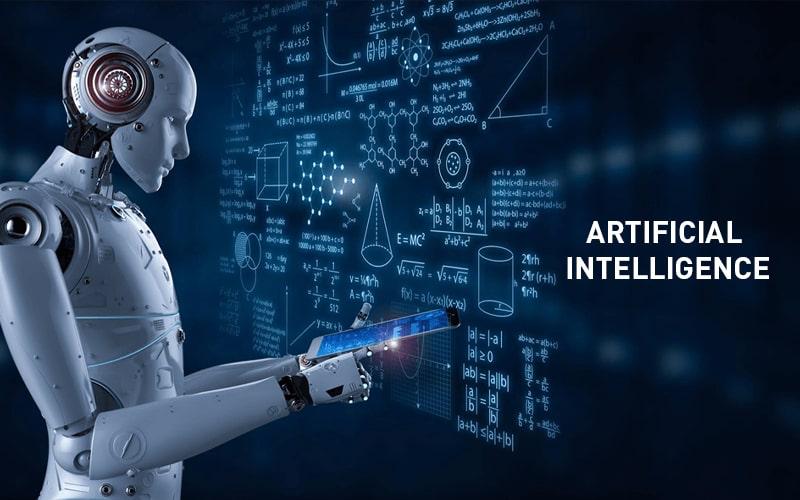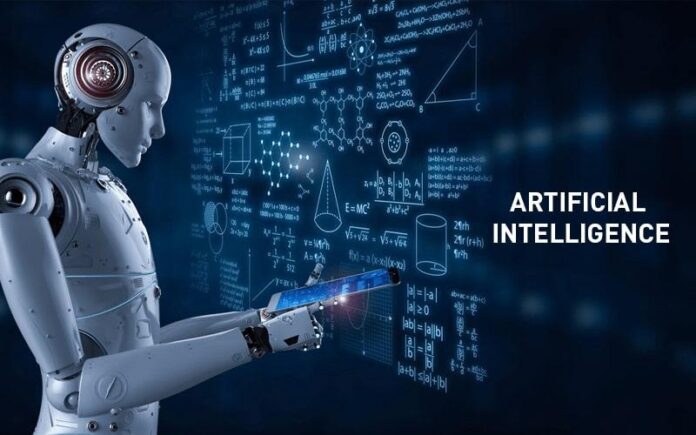
As Artificial Intelligence (AI) continues to advance rapidly, permeating nearly every sector of human life from education and healthcare to transportation and governance, the global discourse increasingly grapples with a polarizing question: Can humans be fully replaced by AI? While machines have become remarkably proficient at simulating certain aspects of cognition, this paper argues that AI cannot and should not replace humans in totality.
Through philosophical inquiry, psychological insights, and ethical reflection, reinforced by quotes from leading intellectuals and scholars, this article defends the irreplaceable nature of human consciousness, emotion, creativity, and moral agency. The purpose is not to reject AI, but to reassert human significance in shaping an ethically grounded and emotionally intelligent future.
Introduction: The Rise of the Machine Mind
The 21st century has witnessed an explosion in the capabilities of artificial intelligence. Once confined to science fiction, AI now writes news articles, diagnoses medical conditions, assists in legal rulings, and even creates digital art. From generative models like ChatGPT and DALL·E to advanced robotics, machines appear to be on an unrelenting march toward human parity.
This technological marvel, however, comes paired with a haunting societal question: Are humans becoming obsolete in the face of intelligent machines? While many view this as a thrilling frontier of innovation, others, particularly scholars, ethicists, and philosophers, caution against technological triumphalism.
To quote Yuval Noah Harari, “The danger is not that machines will start to think like humans, but that humans will begin to think like machines.” This paper explores this concern by critically examining the unique dimensions of humanity that AI, by design or by limitation, cannot replicate or replace.
Beyond Computation: Intelligence vs. Consciousness
At its core, AI is not conscious, it is computational. What we refer to as “intelligence” in machines is merely the processing of inputs to produce statistically probable outputs based on training data. While powerful, this process lacks intentionality, self-awareness, and contextual reasoning, all hallmarks of true human intelligence.
Alan Turing, often considered the father of modern computing, famously proposed the question: “Can machines think?” Today, we know machines can simulate thought, but they do not possess what philosophers call qualia, the subjective, internal experiences that constitute consciousness. A machine can analyze sadness, but it cannot feel sorrow. It can detect patterns in behaviour, but it cannot reflect on its own existence.
As Fei-Fei Li of Stanford notes, “AI can do many things, but it lacks heart. It doesn’t have purpose, empathy, or the moral compass that guides human decision-making.” This underscores a crucial boundary: intelligence without consciousness is not understanding, it is imitation.
Emotions: The Heart of Humanity
Human life is driven not just by logic but by emotion, a powerful, biologically ingrained system of motivation, empathy, and moral judgment. AI can process text that mimics emotional tone, but it does not possess affective consciousness. It does not care. It does not grieve. It cannot love.
In clinical settings, AI may outperform doctors in diagnosing conditions based on imaging. But when it comes to delivering bad news, offering comfort, or navigating the emotional landscape of a patient’s journey, it fails. As Barack Obama insightfully said, “Empathy is a quality of character that can change the world.” Empathy cannot be programmed; it is lived.
AI may simulate compassion, but compassion is not a code, it is an experience. The ability to intuit the needs of others, to mourn with those who mourn and rejoice with those who rejoice, places humans in a realm machines cannot enter.
The Limits of Machine Creativity
There is a growing myth that AI can now “create.” This claim is misleading. AI generates content based on the recombination of data it was trained on. It produces, but it does not originate. AI’s “art” is derivative, a collage of human input, rearranged with no internal spark or purpose.
Creativity is fundamentally tied to meaning-making, intentionality, and cultural context. A poem written by a heartbroken artist during a war reflects not only linguistic ability but a soul in turmoil. No machine knows despair. No algorithm grieves. AI does not desire, aspire, or daydream.
Cognitive scientist Margaret Boden affirms, “AI can produce art, but it does not know it is making art.” The absence of self in AI creativity is what makes it fundamentally alien to the human creative process.
Moral Agency and Ethical Reasoning
Humans are not merely data processors, we are moral agents. We make decisions under uncertainty, with awareness of right and wrong, responsibility, and the potential for regret. This is an ethical dimension AI cannot comprehend.
Algorithms that drive autonomous vehicles or perform facial recognition are already embroiled in ethical controversy. When an autonomous vehicle must choose between hitting a pedestrian or endangering its passenger, how does it decide? Who takes responsibility?
As Shoshana Zuboff, author of The Age of Surveillance Capitalism, explains: “Who controls the code controls the future.” The ethical question is no longer what AI can do, but what it should do, and who gets to decide. These are human, not technological problems.
Social Consequences and the Danger of Dehumanization
There is a subtle but real danger that as AI grows in efficiency, humans may increasingly be viewed as inefficient or irrational. In workplace settings, algorithms now track employee productivity, schedule shifts, and make hiring decisions. This “mechanization of the human” reduces people to data points, often stripping away nuance, dignity, and individuality.
Stephen Hawking warned before his death, “The development of full artificial intelligence could spell the end of the human race.” While the end may not come as apocalyptic as that, the end of human centrality in moral, political, and philosophical questions is a very real concern. Humans must not become robotic in a machine-optimized world. Our value lies not in our speed or precision, but in our depth, care, and ability to transcend the algorithmic.
AI and the Future of Work: Evolve, Not Replace
While it’s true that AI will disrupt the job market, history shows us that automation often creates new roles and industries. The Industrial Revolution eliminated certain tasks but gave birth to modern engineering, healthcare, education, and entertainment sectors. The future is not a binary of human vs. AI, but human with AI. We need to reimagine roles that value emotional intelligence, leadership, negotiation, education, and the arts, areas where machines are fundamentally limited. As Satya Nadella, CEO of Microsoft, wisely stated, “AI will amplify human ingenuity, not replace it.”
Conclusion: Embracing Enhancement, Not Replacement
The most dangerous assumption of the AI age is that everything valuable can be digitized. That belief is not only flawed, it is fatal to the human spirit. It reduces love to logic, creativity to computation, and purpose to performance.
Let us not build a future where humans imitate machines. Let us build one where machines elevate humanity. Where AI handles the repetitive so that humans can focus on the reflective. Where automation supports compassion, not replaces it.
Because at the end of the day,
Silicon can simulate speech, but it cannot tell a story from the heart.
It can generate poetry, but it cannot feel heartbreak.
It can analyze suffering, but it cannot comfort the afflicted.
AI will shape the future but only humans can give that future meaning.
References
• Harari, Yuval Noah. 21 Lessons for the 21st Century. Spiegel & Grau, 2018.
• Turing, Alan. “Computing Machinery and Intelligence.” Mind, 1950.
• Zuboff, Shoshana. The Age of Surveillance Capitalism. PublicAffairs, 2019.
• Li, Fei-Fei. “Human-Centered AI.” Stanford University Reports, 2020.
• Chomsky, Noam. “The False Promise of ChatGPT.” The New York Times, 2023.
• Boden, Margaret A. “Creativity and Artificial Intelligence.” Artificial Intelligence, 1998.
• Nadella, Satya. “Build Keynote.” Microsoft, 2019
• Hawking, Stephen. “BBC Interview on AI.” BBC
• Obama, Barack. Speech on Education and Empathy, White House Archives, 2016.
DISCLAIMER: The Views, Comments, Opinions, Contributions and Statements made by Readers and Contributors on this platform do not necessarily represent the views or policy of Multimedia Group Limited.
DISCLAIMER: The Views, Comments, Opinions, Contributions and Statements made by Readers and Contributors on this platform do not necessarily represent the views or policy of Multimedia Group Limited.


